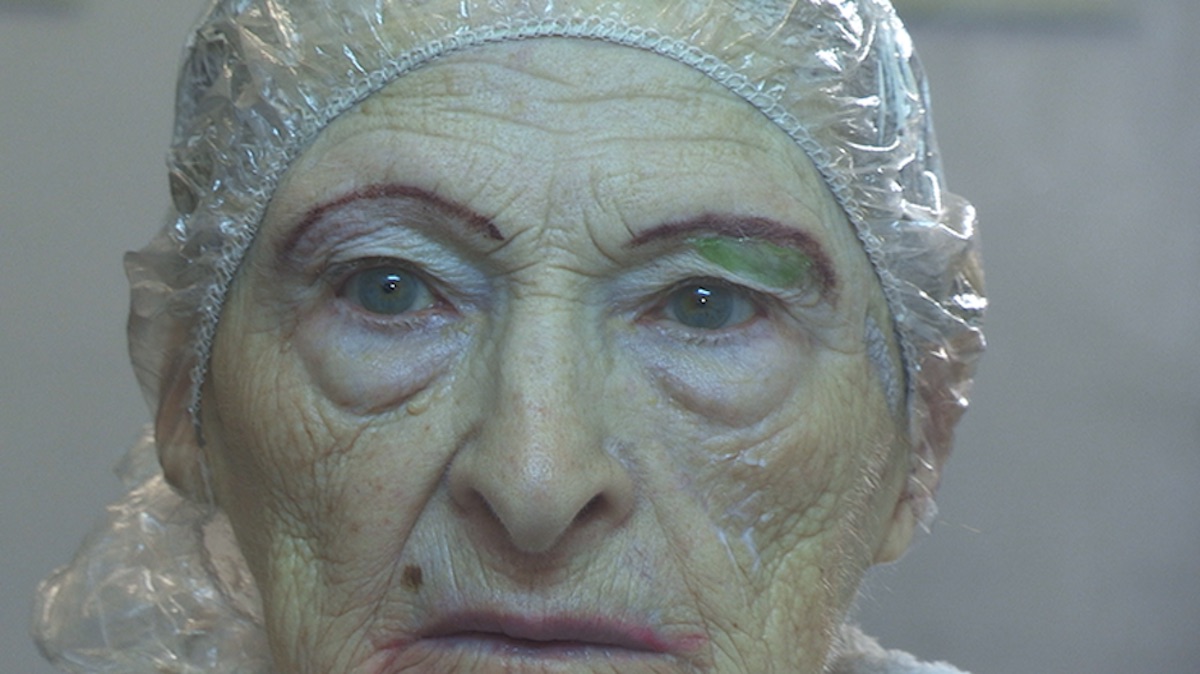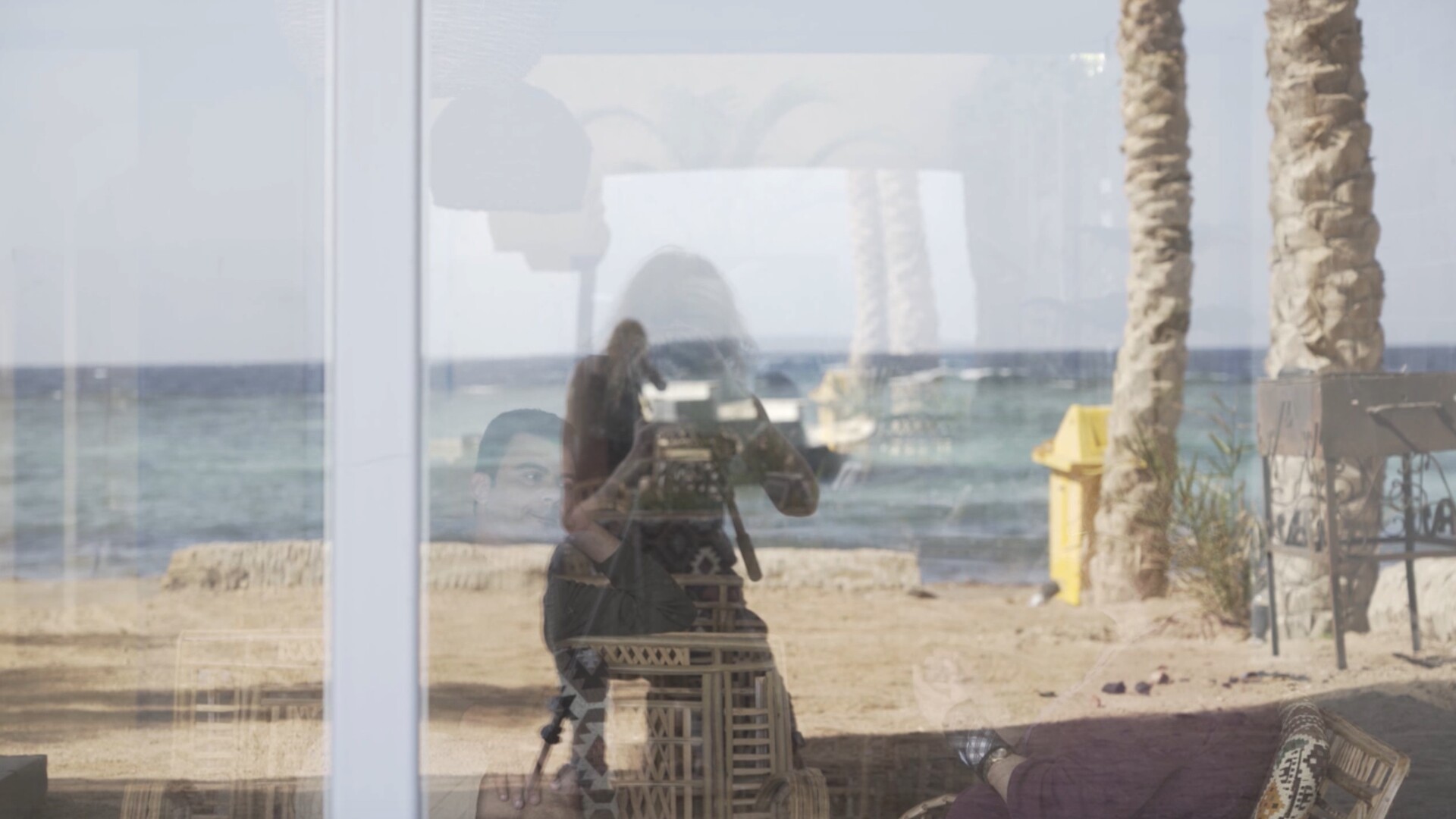VIDEONALE.scope #9

VIDEONALE.scope #9 | Madness and Civilization
An experimental film and video art series by Videonale Bonn
Curated by Viktor Neumann
December 15-18, 2021
This December VIDEONALE.scope #9 dedicates four evenings to historical and contemporary moving image works that examine the relation between madness and civilization and the normative constructions of “illness” and “health.”
The program borrows its title from Michel Foucault’s eponymous study Madness and Civilization: A History of Insanity in the Age of Reason. In his first major theoretical work from 1961, the French philosopher argues against the diagnosis of mental illnesses as codified medical facts, instead shedding light on how the concept of madness has changed over the course of history and on the societal and political concepts that underpin these constructions. The text is regarded as one of the pivotal theories for the demands of the anti-psychiatry movement that, since the 1950s, has criticized institutional psychiatry and its treatment methods, investigated the role of society towards the processes of becoming insane, and placed emphasis on neuronal differences as other, but no less significant forms of cognition. While the movement was able to assert many of its demands, the alleged oppositions between “healthy/productive” and “ill/unproductive” continue to function as central categories for systemic oppression, far beyond the medical realm. At the latest since the efforts of the anti-psychiatry and the disability rights movements, numerous positions in the field of moving image have emerged that contribute to producing emancipatory acts and that understand vulnerability and empowerment as interrelated.
VIDEONALE.scope #9 brings together experimental films, video works and conversations with artists and filmmakers that aesthetically and discursively approach the realm of “madness and civilization” from different perspectives.
With works by Panteha Abareshi, Mel Baggs, Stan Brakhage, Tony Cokes, Thirza Cuthand, Heinz Emigholz, Luke Fowler, Coco Fusco, Barbara Hammer, William E. Jones, Carolyn Lazard, Karin Michalski & Ann Cvetkovich, Rory Pilgrim, Jacolby Satterwhite, P. Staff, Imogen Stidworthy and Martine Syms.
TICKETS VIDEONALE.scope #9
5 euro / 3 euro (reduced)
Combined Ticket (2 programs): 8 euro / 4 euro (reduced)
Scope-Ticket (all events): 24 euro / 12 euro (reduced)
Tickets are available at the box office.
Single tickets for the event on 18.12. at Filmhaus Köln can also be booked via the online booking system.
According to the current Covid-19 regulations, all VIDEONALE.scope events take place as 2G events.
Full Program VIDEONALE.scope #9
VIDEONALE.scope #9 | SHORT FILMS #1
How can we rethink resistant forms of coming together, forms where bodies do not have to be physically present to be noticed? How can we reinterpret media images that are used to construct norm/abnorm and stoke fear towards specific groups? What role does the medical industrial complex play in perpetuating inequalities and as a form of violence? In a second part of the programme, the chimpanzee animal psychologist Dr. Zira from the Planet of the Apes-movies concludes by speculating on the aggressive-individualistic behaviour of humans.
With works by Tony Cokes, P. Staff, Martine Syms, Jacolby Satterwhite, Coco Fusco.
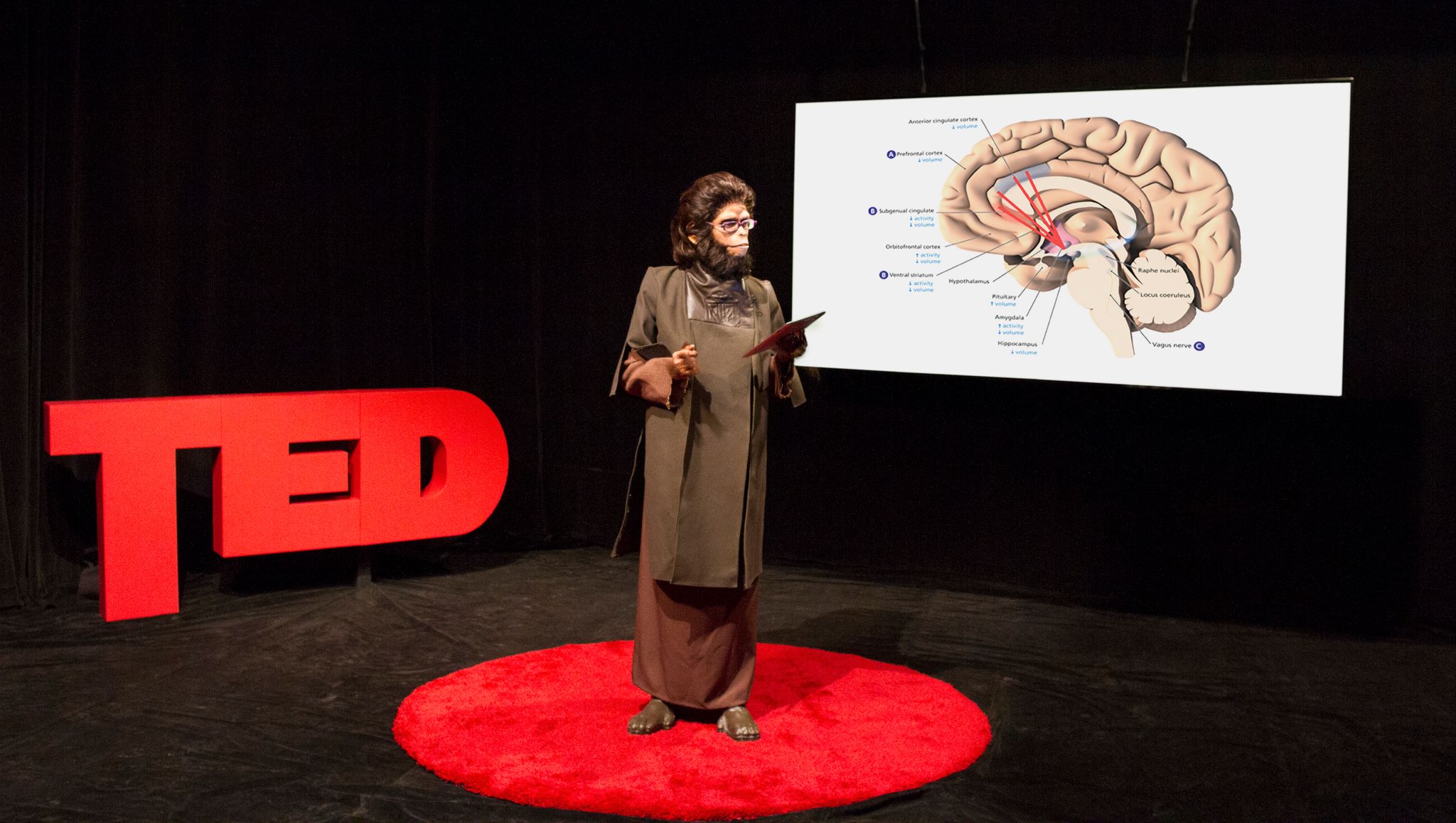
VIDEONALE.scope #9 | FEATURE #1
Tearoom is based on a found tape of police surveillance footage of a men's restroom in Mansfield, Ohio in 1962. Years before the Stonewall movement, the footage was used in court as evidence to convict the identified men. The minimum sentence for sodomy was one year in jail and psychiatric treatment, including the usual methods such as electric shocks or drugging. The appropriation of the footage tells of a repressed historiography of men who, regardless of class, age or skin color, entered into unions with each other that were able to destabilise the ideology of mainstream society.
William E. Jones, Tearoom, US 1962/2007, Color, 16mm/Digital, 56' (Silent)
Followed by an artist talk with William E. Jones.
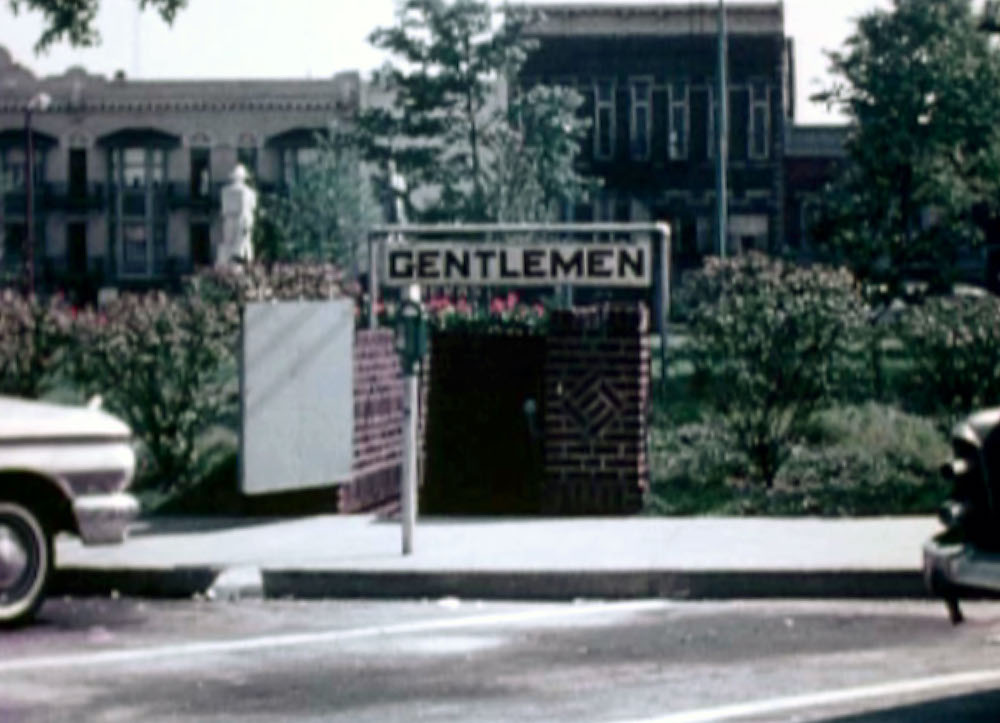
VIDEONALE.scope #9 | SHORT FILMS #2
What is considered thought and language and what is not? And who has the power to decide about it? How do we communicate chronic pain or mental suffering? How do personal and collective trauma inform each other? And how can so-called negative emotions and feelings be understood not as individually based and "solvable" but as cultural phenomena and political symptoms?
- Mel Baggs, In My Language, 2007
- Imogen Stidworthy, Iris [A Fragment], 2018-19
- Panteha Abareshi, Unlearn the Body, 2019
- Panteha Abareshi, Not Better Yet, 2019
- Carolyn Lazard, Consensual Healing, 2018
- Barbara Hammer, X, 1973
- Karin Michalski und Ann Cvetkovich, 2014
- Thirza Cuthand, Extractions, approx. 2019
- Stan Brakhage, Commingled Containers, 1996

VIDEONALE.scope #9 | FEATURE #2
Software Garden is a music album whose 11 tracks weave together influences from pop, electronic and techno with string arrangements. Its cinematic formulation explores the intersections between technology and care work. The collaborative work is structured through poems by poet and disability rights activist Carol R. Kallend, in which she reflects on her desire for a robot companion to fill the void left by the UK government's drastic cuts to welfare services.
Rory Pilgrim, Software Garden, UK/NL 2016-18, Color, Digital, 51'29'' (Engl. OF)
Followed by an artist talk with Rory Pilgrim and Carol R. Kallend.
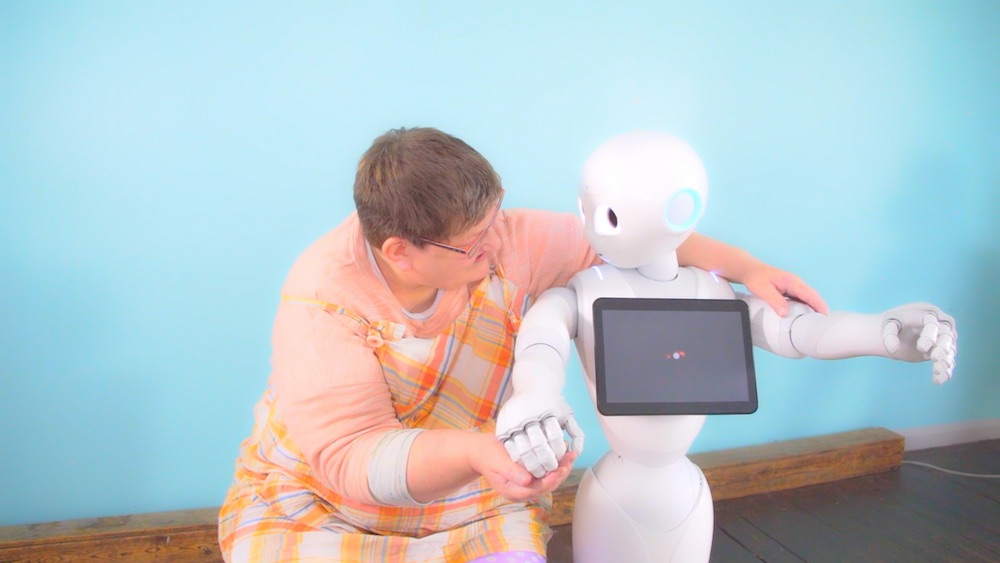
VIDEONALE.scope #9 | FEATURE #3
This para-documentary portrait of R.D. Laing (1927-1989) offers insight into the life and work of the notorious Scottish psychiatrist, considered a pioneer of the anti-psychiatric movement, who had a profound impact on the understanding of the social and political dimensions of mental difference, psychological distress and suffering. Fowler's poetic collage, whose title borrows from Laing's best-known work, The Devided Self (1960), weaves together archival footage from the period of the social and cultural revolutions of the 1960s with his own sensitive cinematic observations.
Luke Fowler, All Devided Selves, UK 2011, b/w and color, 16mm/Digital, 93' (Engl. OF)
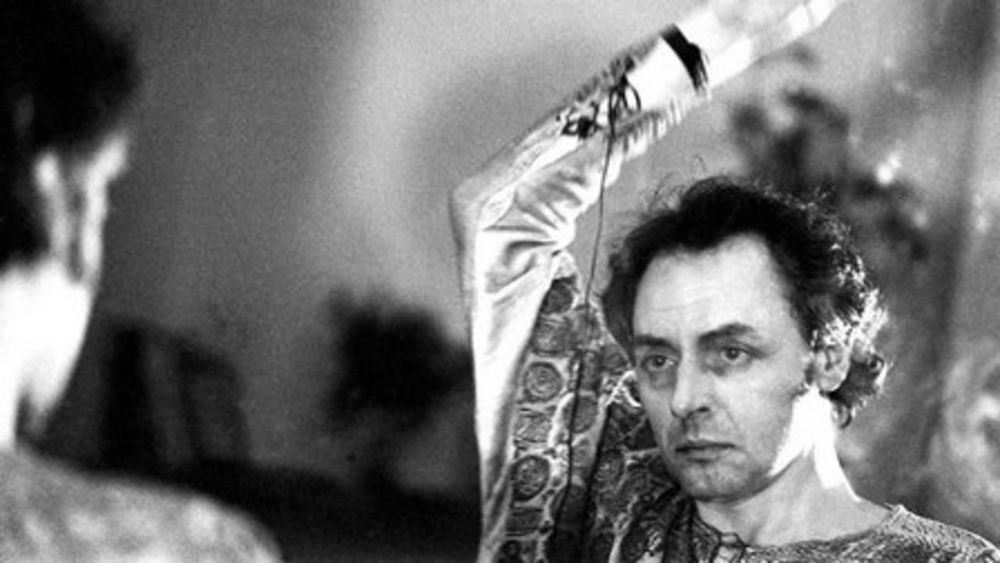
VIDEONALE.scope #9 | SHORT FILMS #4
Photography and beyond - Part 26, Chapter 3 of the Streetscapes series and not only its grandmasterly centerpiece: a dialogue turned into a film between an analyst and his analysand, an obsessed yet blocked filmmaker, about architecture and trauma, shot in ensembles by Julio Vilamajó, Eladio Dieste and Arno Brandlhuber.
Heinz Emigholz, Streetscapes [Dialogue], DE 2017, Color, Digital, 133' (Engl. OF, GE UT)
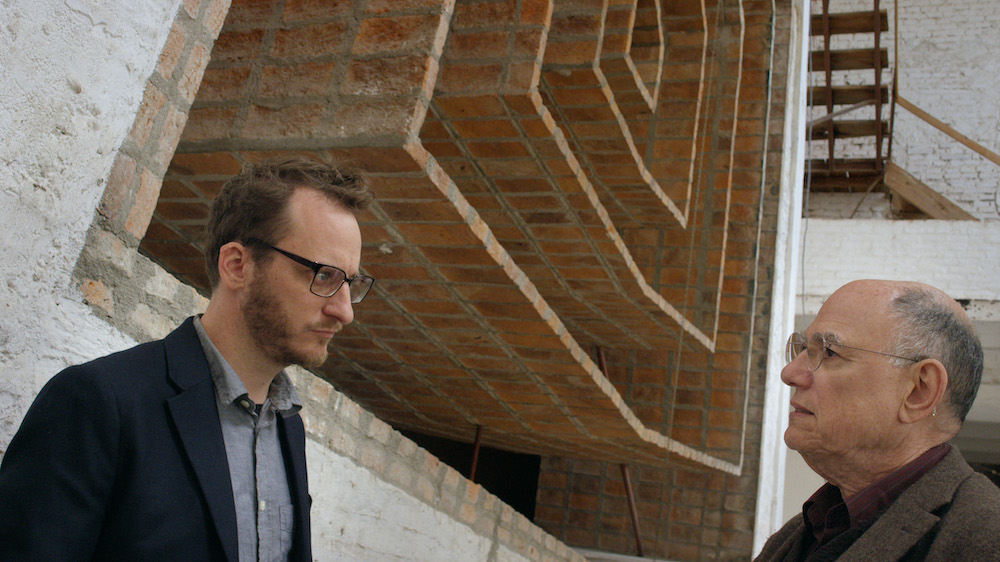
Wed, 15.12.2021
How can we rethink resistant forms of coming together, forms where bodies do not have to be physically present to be noticed? How can we reinterpret media images that are used to construct norm/abnorm and stoke fear towards specific groups? What role does the medical industrial complex play in perpetuating inequalities and as a form of violence? In a second part of the programme, the chimpanzee animal psychologist Dr. Zira from the Planet of the Apes-movies concludes by speculating on the aggressive-individualistic behaviour of humans.
With works by Tony Cokes, P. Staff, Martine Syms, Jacolby Satterwhite, Coco Fusco.
Thu, 16.12.2021
Tearoom is based on a found tape of police surveillance footage of a men's restroom in Mansfield, Ohio in 1962. Years before the Stonewall movement, the footage was used in court as evidence to convict the identified men. The minimum sentence for sodomy was one year in jail and psychiatric treatment, including the usual methods such as electric shocks or drugging. The appropriation of the footage tells of a repressed historiography of men who, regardless of class, age or skin color, entered into unions with each other that were able to destabilise the ideology of mainstream society.
William E. Jones, Tearoom, US 1962/2007, Color, 16mm/Digital, 56' (Silent)
Followed by an artist talk with William E. Jones.
Thu, 16.12.2021
What is considered thought and language and what is not? And who has the power to decide about it? How do we communicate chronic pain or mental suffering? How do personal and collective trauma inform each other? And how can so-called negative emotions and feelings be understood not as individually based and "solvable" but as cultural phenomena and political symptoms?
- Mel Baggs, In My Language, 2007
- Imogen Stidworthy, Iris [A Fragment], 2018-19
- Panteha Abareshi, Unlearn the Body, 2019
- Panteha Abareshi, Not Better Yet, 2019
- Carolyn Lazard, Consensual Healing, 2018
- Barbara Hammer, X, 1973
- Karin Michalski und Ann Cvetkovich, 2014
- Thirza Cuthand, Extractions, approx. 2019
- Stan Brakhage, Commingled Containers, 1996
Fri, 17.12.2021
Software Garden is a music album whose 11 tracks weave together influences from pop, electronic and techno with string arrangements. Its cinematic formulation explores the intersections between technology and care work. The collaborative work is structured through poems by poet and disability rights activist Carol R. Kallend, in which she reflects on her desire for a robot companion to fill the void left by the UK government's drastic cuts to welfare services.
Rory Pilgrim, Software Garden, UK/NL 2016-18, Color, Digital, 51'29'' (Engl. OF)
Followed by an artist talk with Rory Pilgrim and Carol R. Kallend.
Fri, 17.12.2021
This para-documentary portrait of R.D. Laing (1927-1989) offers insight into the life and work of the notorious Scottish psychiatrist, considered a pioneer of the anti-psychiatric movement, who had a profound impact on the understanding of the social and political dimensions of mental difference, psychological distress and suffering. Fowler's poetic collage, whose title borrows from Laing's best-known work, The Devided Self (1960), weaves together archival footage from the period of the social and cultural revolutions of the 1960s with his own sensitive cinematic observations.
Luke Fowler, All Devided Selves, UK 2011, b/w and color, 16mm/Digital, 93' (Engl. OF)
Sat, 18.12.2021
Photography and beyond - Part 26, Chapter 3 of the Streetscapes series and not only its grandmasterly centerpiece: a dialogue turned into a film between an analyst and his analysand, an obsessed yet blocked filmmaker, about architecture and trauma, shot in ensembles by Julio Vilamajó, Eladio Dieste and Arno Brandlhuber.
Heinz Emigholz, Streetscapes [Dialogue], DE 2017, Color, Digital, 133' (Engl. OF, GE UT)
In Cooperation with:
reboot: responsivness (Kölnischer Kunstverein und Kunstverein für die Rheinlande und Westfalen, Düsseldorf)

